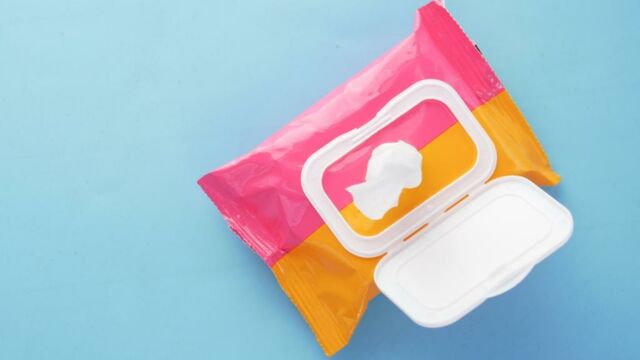Wet wipes ban in the UK: Here's why using them in the toilet is bad for your health

The UK government is planning to ban wet wipes in a bid to tackle water pollution. Here is why it’s actually good news for your health.
It’s a known fact that wet wipes are bad for the environment. Flushed down toilets, they cause 93% of sewer blockages including so-called fatbergs and cost around £100m a year to clear up, according to Water UK which represents the water industry.
Discover our latest podcast
It turns out, wet wipes aren’t that good for your skin either. Here is what the experts say about it.
One of the biggest pollutants
According to environment minister Therese Coffey, the ban on plastic-based wipes should come into force in the next year following a consultation.
More under this adMore under this adIt is part of a broader strategy, called Plan for Water, which the Department for Environment, Food and Rural Affairs (Defra) want to improve England's water quality. It includes a potential ban on some types of so-called forever chemicals or PFAS, tackling pollution from farming and run-off from road traffic.
Around 90% of wipes contained plastic in 2021, although there are now some alternatives available to buy. The plastics do not break down and over time the wipes become snagged and stick together, causing sewage to stop moving through pipes.
More under this adMore under this adThe government has said it will launch a public consultation on plans to ban plastic wet wipes which clog up UK sewers https://t.co/XWN4kMPwDf
— Sky News (@SkyNews) April 4, 2023
Read more:
⋙ This is how much toilet paper you should use every time you go to the bathroom
⋙ Constipation while travelling: Here's how to prevent stubborn poo during your holiday
In Wales, a proposed ban on plastic in wet wipes has not yet been implemented. The Scottish government consulted on a ban but has not taken further action.
More under this adMore under this adSome companies, including Boots and Tesco, have already stopped the sale of wet wipes which contain plastic from their shops.
Wet wipes can lead to skin problems
Evan Goldstein, DO, anal surgeon and founder of Future Method believes that although many people use wet wipes for anal hygiene, these easy tools can cause more harm than they bring benefits.
More under this adMore under this adAccording to Dr Goldstein, the anus and its surrounding skin are covered in good and bad bacteria, which work together to find homeostasis. When you start to augment that microbiome with wet wipes, you're wiping away the good bacteria and the balance becomes a problem.
It may lead to irritation, rashes, or fungal or bacterial infections.
Dr Goldstein adds that another big risk with using wet wipes is the moisture factor.
He said:
People tend to use wet wipes and then pull up their pants, so what happens is that the moisture sits there. The moisture just festers, and it causes a change in bacteria and leads to irritation.More under this adMore under this ad
If this continually happens, people can feel as though they have fissures or haemorrhoids when really it's just a buildup of irritation and bad bacteria.
Dr Goldstein advises using toilet paper and bidets instead of wet wipes with the latter being a preferred option as they can be an effective way to reduce paper consumption.
More under this adMore under this adRead more:
⋙ New photos reveal what your hands look like if you don't wash them after going to the toilet
⋙ The right way to wipe yourself after going to the toilet revealed
Sources used:
- BBC News: 'Plastic wet wipes ban planned in England to tackle pollution'
- Well+Good: 'Why an Anal Surgeon Is Begging You To Stop Using Wet Wipes'